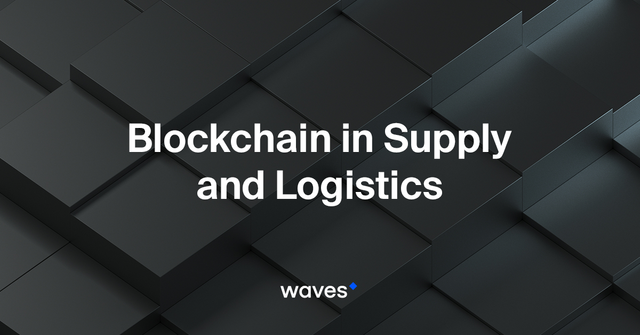Blockchain in Supply and Logistics

Supply chains are riven with inefficiencies and problems. Blockchain can help — and the first applications are already being trialled.
With the increasing globalisation and complexity of manufacturing processes, supply chains have also become correspondingly more complicated. The average electronics product you buy at a retail outlet, for example, is the result of many, many different steps that have taken place at different locations across the world as raw materials are sourced, processed, and made into components that are themselves sold and shipped to provide the basic parts for more intricate items. The failure of any one of the stages in the supply chain – or perhaps ‘supply tree’ might be a more apt description – means costly delays for the final product. Conventional systems aren’t good at managing supply chains, but blockchain can provide the ideal solution.
Supply chain integrity
One of the problems now coming to public attention is the opacity of the supply chain. Companies at one point in the chain may know very little about those at earlier stages — and may not care. There is a collective failure of due diligence, as businesses prioritise receiving the materials or items they need at the best price, regardless of how they were created.
This manifests itself in a wide range of problems, from fake goods — including high-value items like pharmaceuticals, sportswear and fashion items – to human rights abuses such as child labour and use of conflict minerals. All of these have very real human and financial costs, but the nature of supply chains means that entities are typically insulated from other stages unless they deal directly with them (and sometimes not even then).
The blockchain is a perfect solution to these problems since it enables the existence of a single, immutable record: a universal truth that can be viewed by anyone and that cannot be altered. This takes the form of recording receipt and provenance of goods at every stage, hashing documentation and lodging permanent entries on the blockchain. Such is the simplicity and effectiveness of this solution that it is already in use. Everledger has pioneered this for the diamond trade, and more recently new initiatives have started to use the blockchain to guarantee the provenance of tuna and other goods sourced from areas where human rights abuses, overfishing, fraud, and illegal, unreported, and unregulated (IUU) fishing threaten the environment and welfare of local communities.
The ‘bullwhip effect’
On an even more systemic level, supply chains don’t work well. Many large companies use ‘just-in-time’ processes that rely on manufacturers having exactly the right amount of inventory at any given point — too much or not enough represents costly inefficiencies.
Unfortunately, the siloed nature of supply chains means that they do not cope well with fluctuations in supply and demand. This is known as the Forrester effect or Bullwhip effect. The impact of a small change in demand at one point is magnified as it travels down the supply chain, such that a 5% increase at one end can become a 40% increase at the other. If the reason for that increase is not well understood — that is, if the retailer or wholesaler does not have visibility of the manufacturer or raw materials supplier — then it will be misinterpreted, with serious implications. The classic story involves Volvo’s marketing team noting that green cars did not sell as well as other colours. The team implemented a successful marketing campaign and shifted their excess inventory. However, manufacturing did not know the context and read the data as an organic increase in demand for green cars — and therefore increased production.
A blockchain solution can again facilitate overall visibility of the whole picture and enable a more responsive, trustworthy and informed approach to changes in demand. For this reason, Walmart, IBM and others have started to research how to implement this idea to improve supply chain management.
Conclusion
Overall, the benefits of blockchain technology for supply chain management draw upon the same themes as other blockchain applications: a real-time, secure, trustworthy record of activity that is visible to all and cannot be altered. Supply chain integrity and management has already become one of the earliest real-world use cases for blockchain technology.
Join Waves Community
Read Waves News channel
Follow Waves Twitter
Subscribe to Waves Facebook
let's fight the forces of evil, in cryptocurrency we trust
Thanks for sharing this interesting insight. I look forward to more articles from you guys!
You got a 24.11% upvote from @upmewhale courtesy of @wavesplatform!
Earn 100% earning payout by delegating SP to @upmewhale. Visit http://www.upmewhale.com for details!
bien....
I got the concept of Blockchain and all the merits which a lot of people are talking about. But in real business, a lot of changes are inevitably happening, so 'immutability' itself seems to be a contradictory from this perspective. If we cannot change anything in real business in real time then what's the benefit of blockchain? Does it mean that blockchain is only good for the business which does not bring any change in every aspect of it? I can understand that it is the good thing if someone cannot change the supply chain as promised, but sometimes we need to change the supply chain itself to meet the customers' needs and business change?